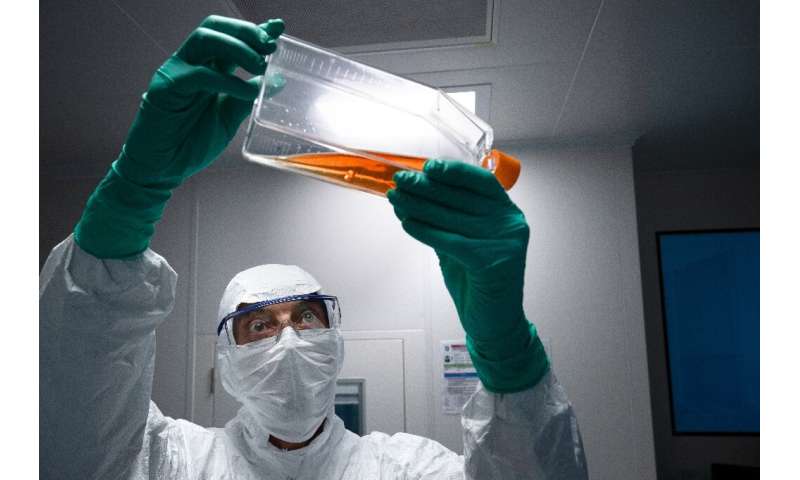
Pharma giants Sanofi and GSK will receive up to $2.1 billion from the US government for the development of a COVID-19 vaccine, the companies said Friday, as the world scrambles for an answer to the pandemic.
At the same time, the European Union said it had reached a deal with Sanofi for the supply of 300 million doses of a potential coronavirus vaccine.
The European Commission, the bloc’s executive arm which negotiated the agreement, said it would allow all 27 EU member countries to purchase the vaccine once it was proven to be safe and effective.
The United States has identified a vaccine candidate under development by Sanofi and GSK for its “Operation Warp Speed,” which aims to rapidly secure millions of doses.
The firms aim to combine a Sanofi-developed antigen, which stimulates the production of germ-killing antibodies, with GSK’s adjuvant technology, a substance that bolsters the immune response triggered by a vaccine.
The American money will “help fund the development activities and secure scale-up of Sanofi’s and GSK’s manufacturing capabilities in the United States… resulting in a significant increase in capacity.”
“The US government will provide up to $2.1 billion, more than half of which is to support further development of the vaccine, including clinical trials, with the remainder used for manufacturing scale-up and delivery of an initial 100 million doses,” the companies said.
“The US government has a further option for the supply of an additional 500 million doses longer term,” they added.
The United States is the country the worst hit by the coronavirus outbreak, with over 150,000 deaths out of the global toll of more than 667,000.
Europe meanwhile has recorded nearly 210,000 deaths from 3.2 million cases, and with infections rising again in several countries there are fears a “second wave” of the pandemic could be on the way.
Sanofi, based in France, and GSK of Britain said clinical trials of their vaccine should start in September, with a Phase 3 study under way by the end of the year.
Billion doses per year
“If the data are positive, the companies can request US regulatory approval in the first half of 2021. In parallel, Sanofi and GSK are scaling up manufacturing of the antigen and adjuvant to produce up to one billion doses per year globally,” they said.
US Health and Human Services Secretary Alex Azar said the portfolio of vaccines being assembled under Operation Warp Speed “increases the odds that we will have at least one safe, effective vaccine as soon as the end of this year.”
The United States has already committed some $6 billion since March to vaccine projects with pharma giants such as Johnson & Johnson, Pfizer and AstraZeneca.
The latest investment holds the “potential to bring hundreds of millions of safe and effective doses to the American people,” Azar said in the statement.
The companies said discussions were also under way with the European Commission and other governments “to ensure global access to a novel coronavirus vaccine.”
The partners intended to supply “a significant portion of total worldwide available supply capacity” in 2021 and 2022 to an initiative seeking to ensure equitable global access to COVID-19 tests, treatments and vaccines.
‘Global public good’
Sanofi CEO Paul Hudson drew the ire of French officials in May when he suggested any COVID-19 vaccine would be offered first to the US government because it had been investing in its development.
Under pressure, he later indicated it would be available to everyone at the same time.
Other countries too, have been investing in a vaccine against the novel coronavirus, with Sanofi and GSK announcing a deal with Britain on Wednesday for 60 million doses.
Laboratories need the money to accelerate the early stages of vaccine development and prepare production units without fearing they will be left out of pocket if the candidate drugs fail.
In turn, governments seek to ensure they will get the first doses if the vaccines do work.
Such deals have drawn criticism for leaving behind poor countries who do not have the cash to conclude such contracts.
Source: Read Full Article